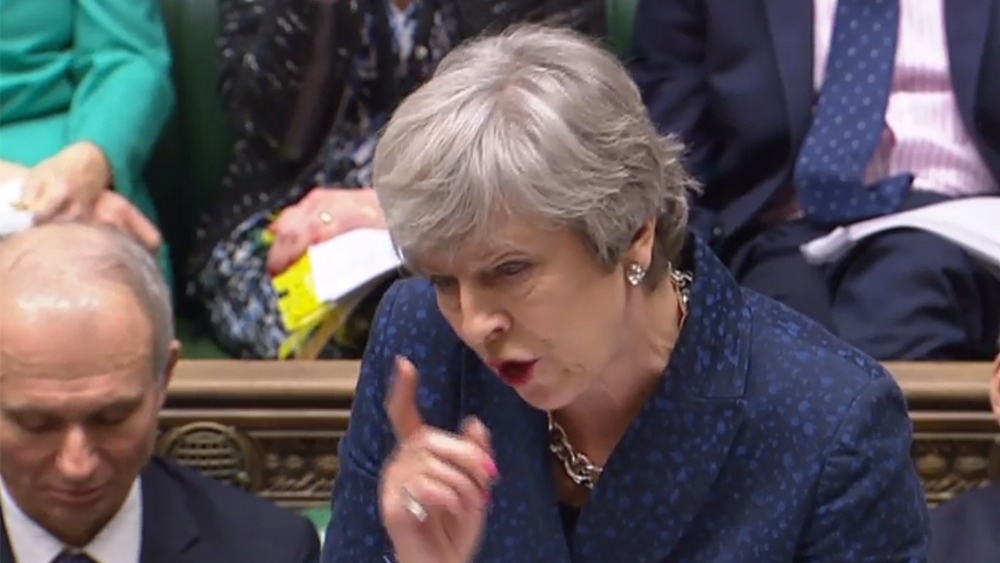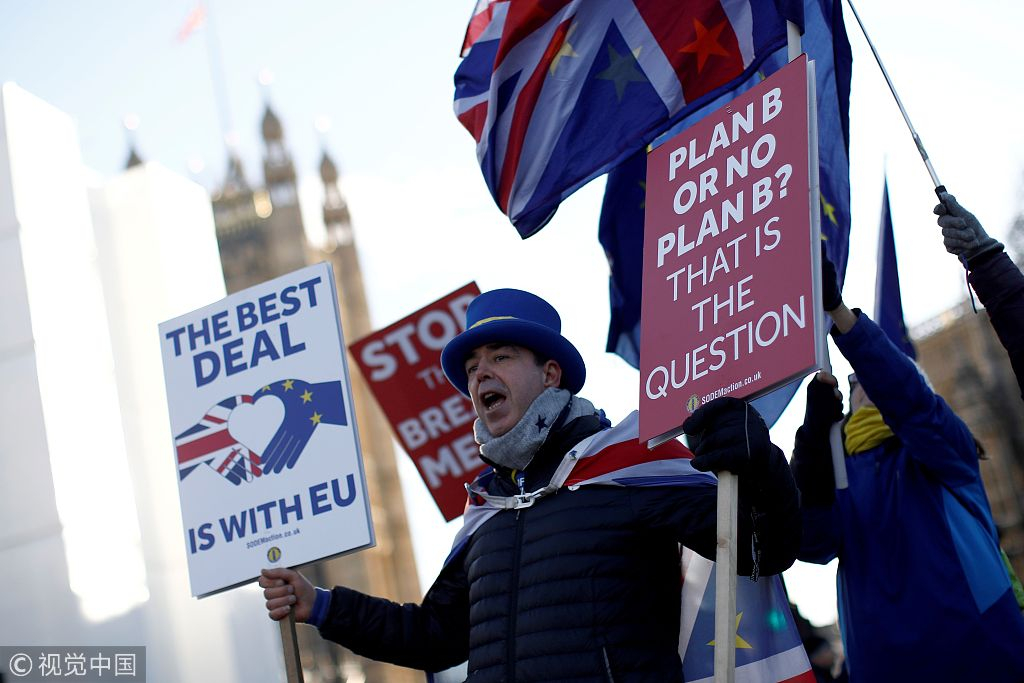
Europe
12:34, 29-Jan-2019
May asks lawmakers to send a message to Brussels on Brexit deal
Updated
14:58, 29-Jan-2019
CGTN

British Prime Minister Theresa May will on Tuesday ask her Conservative lawmakers to send a message to Brussels that they would support her Brexit deal if a plan to avoid a hard border in Ireland is replaced.
Parliament will try to shape the future of the country's exit from the European Union by debating and voting on what changes they want May to seek to her Brexit deal.
With exactly two months until Britain is due to leave the EU on March 29, there is no agreement yet in London on how and even whether to leave the world's biggest trading bloc after May's plan was rejected by an overwhelming majority in parliament.
On Tuesday, lawmakers will debate and vote on May's next steps, with some hoping to gauge the level of support for alternatives to her deal and others even seeking to wrestle control of the process from the government.
It is not a rerun of the January 15 vote on whether to approve May's Brexit deal, but a chance to discover what sort of changes would be required to win the support of parliament, so the prime minister can try to renegotiate the agreement in Brussels.
At the center of many pro-Brexit lawmakers' concerns is the Irish “backstop”, an insurance policy aimed at preventing a hard border between the Republic of Ireland and the British province of Northern Ireland. It would require EU rules to apply in Northern Ireland if no other solutions can be agreed.
00:52

Senior Conservative lawmaker Graham Brady has put forward a proposal, known as an amendment, calling for the backstop to be removed and replaced with “alternative arrangements”.
Clear message
On Monday, May told a private meeting of Conservative lawmakers that the government wanted them to support Brady's amendment, if it is chosen by the speaker of the House of Commons to be put to a vote.
Strong support for the amendment will allow May to demonstrate to the EU that changes to the backstop could be enough to allow her to get parliamentary approval for a deal.
It is not certain to pass, as a group of prominent pro-Brexit Conservative lawmakers have said they do not plan to support it. The DUP, a small Northern Irish Party which props up May's minority government but opposes her deal, has not said how it would vote.
The EU's deputy chief negotiator Sabine Weyand said on Monday that the bloc was “open to alternative arrangements” on the Irish border but that Brady's proposal did not spell out what they were.
Lawmakers have proposed more than 10 different amendments to be debated on Tuesday but only a small number are likely to be chosen to be voted on.
Aside from Brady's proposal, the other key amendment expected to garner a large amount of support, possibly enough to be approved by parliament, is one put forward by opposition Labour lawmaker Yvette Cooper.

Anti-Brexit campaigner Steve Bray holds placards as he demonstrates near the Houses of Parliament in central London, UK, January 28, 2019. /VCG Photo
Anti-Brexit campaigner Steve Bray holds placards as he demonstrates near the Houses of Parliament in central London, UK, January 28, 2019. /VCG Photo
Cooper's amendment seeks to shift control of Brexit from May's government to parliament and if successful could have a profound effect, giving lawmakers who want to block, delay or renegotiate Brexit a possible legal route to do so.
If a subsequent piece of legislation is passed, it would give May until February 26 to get a deal approved by parliament or face a vote on whether to ask the EU to delay Britain's exit to avoid leaving without a deal on March 29.
No free movement if no deal
Meanwhile, the UK Home Office said in a statement on Monday that UK government will seek to end free movement as soon as possible if Britain leaves the European Union without a deal.
For a transitional period, citizens of the European Economic Area and their family members, including Swiss citizens, will be able to come to the UK for visits, work or study and will be able to enter the UK as they do now, the Home Office said in the statement. But to stay for longer than three months they will need to apply for European Temporary Leave To Remain.
For stays longer than three years, EU citizens will have to apply under the new skills-based future immigration system, which will begin from 2021, the statement said.
Source(s): Reuters

SITEMAP
Copyright © 2018 CGTN. Beijing ICP prepared NO.16065310-3
Copyright © 2018 CGTN. Beijing ICP prepared NO.16065310-3